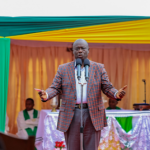Pope Francis’s scholarly side emerged on Sunday when the Vatican published a letter in which he encouraged young priests to read, also revealing his own fondness for great tragedies.
“How can we speak to the hearts of men and women if we ignore, set aside or fail to appreciate the ‘stories’ by which they sought to express and lay bare the drama of their lived experience in novels and poems,” asked the pontiff in his July 17 letter to priests-to-be, published by the Vatican on Sunday in eight languages.
In the lengthy text, filled with references to literary greats such as C.S. Lewis, Marcel Proust, T. S. Eliot, and fellow Argentinian Jorge Luis Borges, Pope Francis argued that reading is “part of one’s path to personal maturity” and essential not only for those joining the priesthood but for all Christians.
He noted that Paul the Apostle was also a reader and emphasized that reading can “(keep) us from other choices that are less wholesome” and open minds “trapped by a few obsessive thoughts.”
“In moments of weariness, anger, disappointment or failure, when prayer itself does not help us find inner serenity, a good book can help us weather the storm until we find peace of mind,” wrote the 87-year-old Argentine Jesuit.
The pope, whose interests also include jazz and soccer, has occasionally hinted at his preferred reading lists. He has mentioned Dostoevsky as a favorite author and confessed to having read Italy’s seminal 1827 novel “The Betrothed” three times, calling author Alessandro Manzoni the champion of “victims and those who come in last.”
In a speech about artificial intelligence to the G7 in June, Francis cited Robert Hugh Benson’s 1907 dystopian novel “Lord of the World,” telling the Group of Seven leaders, “It’s nice to read it, it’s interesting.”
In his letter to young priests, Francis emphasized that reading—which he noted requires greater personal engagement than watching films or television—improves vocabulary, develops intellectual capacity, and reduces stress and anxiety. He expressed regret that literature is considered non-essential in the training of priests.
– An ‘open mind’ –
“We desperately need to counterbalance this inevitable temptation to a frenetic and uncritical lifestyle by stepping back, slowing down, taking time to look and listen. This can happen when a person simply stops to read a book,” wrote the pope.
In a personal aside, Francis recalled teaching high school literature at a Jesuit school at the age of 28, encountering resistance from students who did not want to read certain selections.
Arguing that even difficult or boring texts had value, the pope said people should approach reading with “an open mind” and “a willingness to be surprised.”
“I, for my part, love the tragedians, because we can all embrace their works as our own, as expressions of our own personal drama,” he said.
“In weeping for the fate of their characters, we are essentially weeping for ourselves, for our own emptiness, shortcomings and loneliness.”
Seeing life through the eyes of others through literature leads to greater perspective and greater humanity as readers step out of their own lives to enter that of others, Francis wrote.
“We are caught up in the lives of the fruit seller, the prostitute, the orphaned child, the bricklayer’s wife, the old crone who still believes she will someday find her prince charming,” he said.
Immersing oneself in the thoughts and fears of characters facing daunting challenges has hidden benefits, wrote Francis.
“Perhaps too, in following a story to the end, we gain insights that will later prove helpful in our own lives.”



